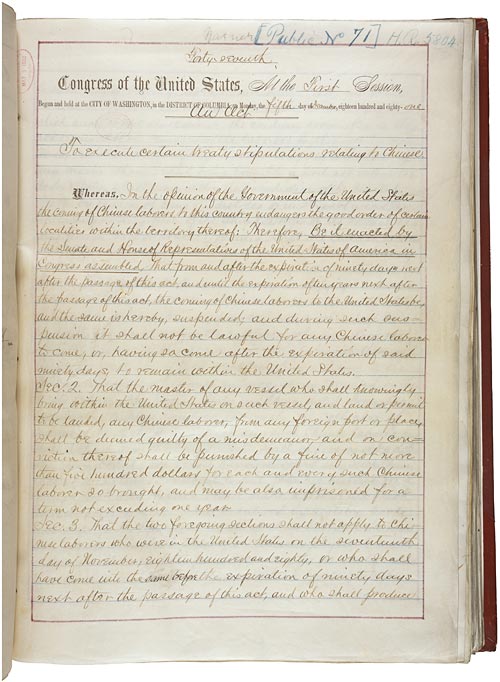A document of the Page Act of 1875. (San Diego State University)
Cost of Expanding Frontier:
Chinese Laborers in the Construction of the Transcontinental Railroads
Aftermath

An image of the Exclusion Act of 1882. (National Archives)
After the construction finished, most workers returned to the Western Coast. Meanwhile, anti-Chinese attitudes prevailed because of economic pressure. Many Chinese were willing to work at significantly lower wages than whites. Chinatown was also viewed as immoral due to the presence of prostitution and opium.
Restrictions against Chinese workers soon appeared. In 1875, one of the first immigration restriction acts, the Page Act, was passed by the Congress. The Page Act banned women from "China, Japan or any Oriental country" for prostitution purposes. In reality, it was used to prevent all Asian women from entering the United States. In 1882, Congress passed the infamous law, the Chinese Exclusion Act, which banned the immigration of Chinese for 10 years and eventually extended until 1904.